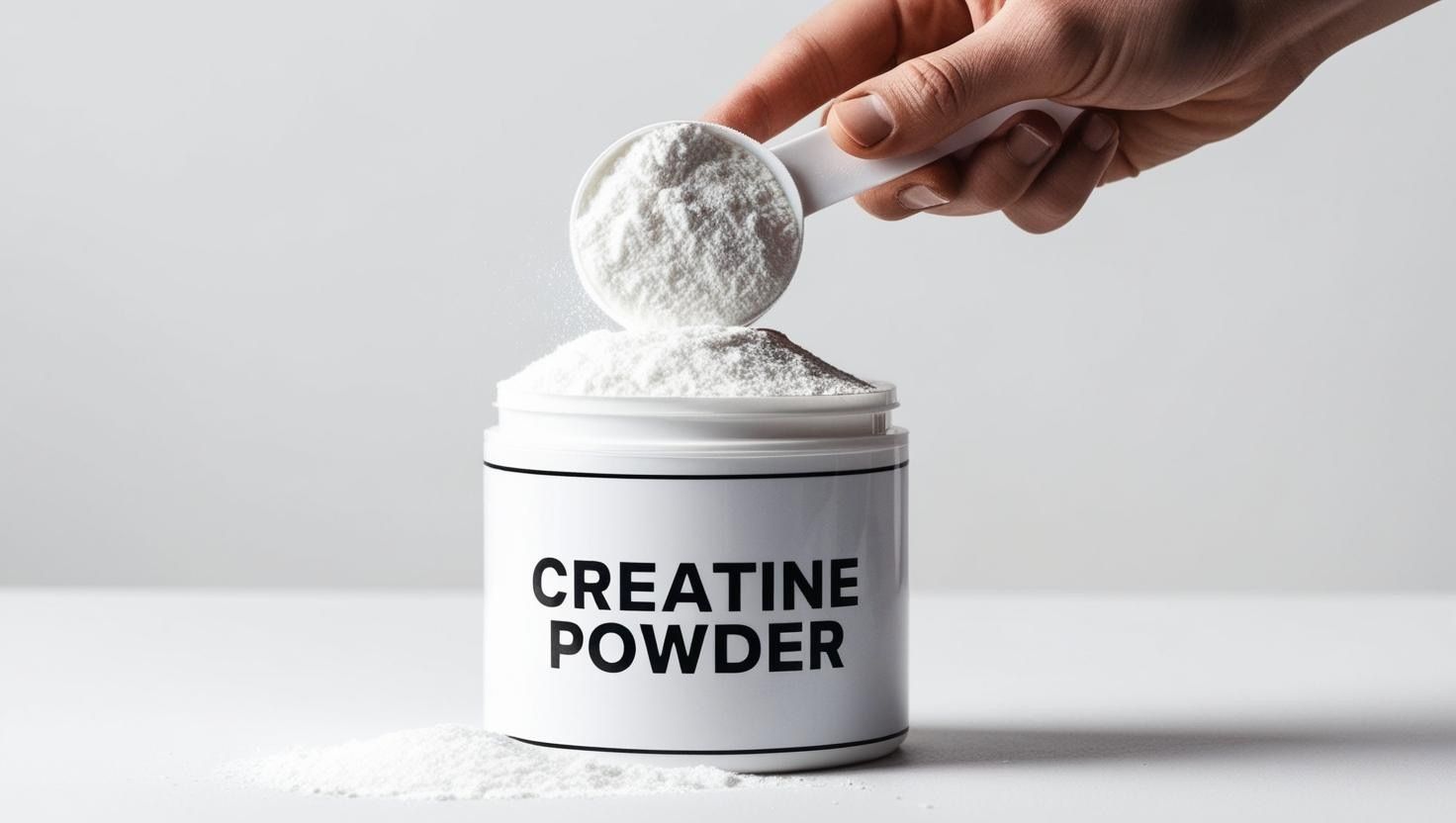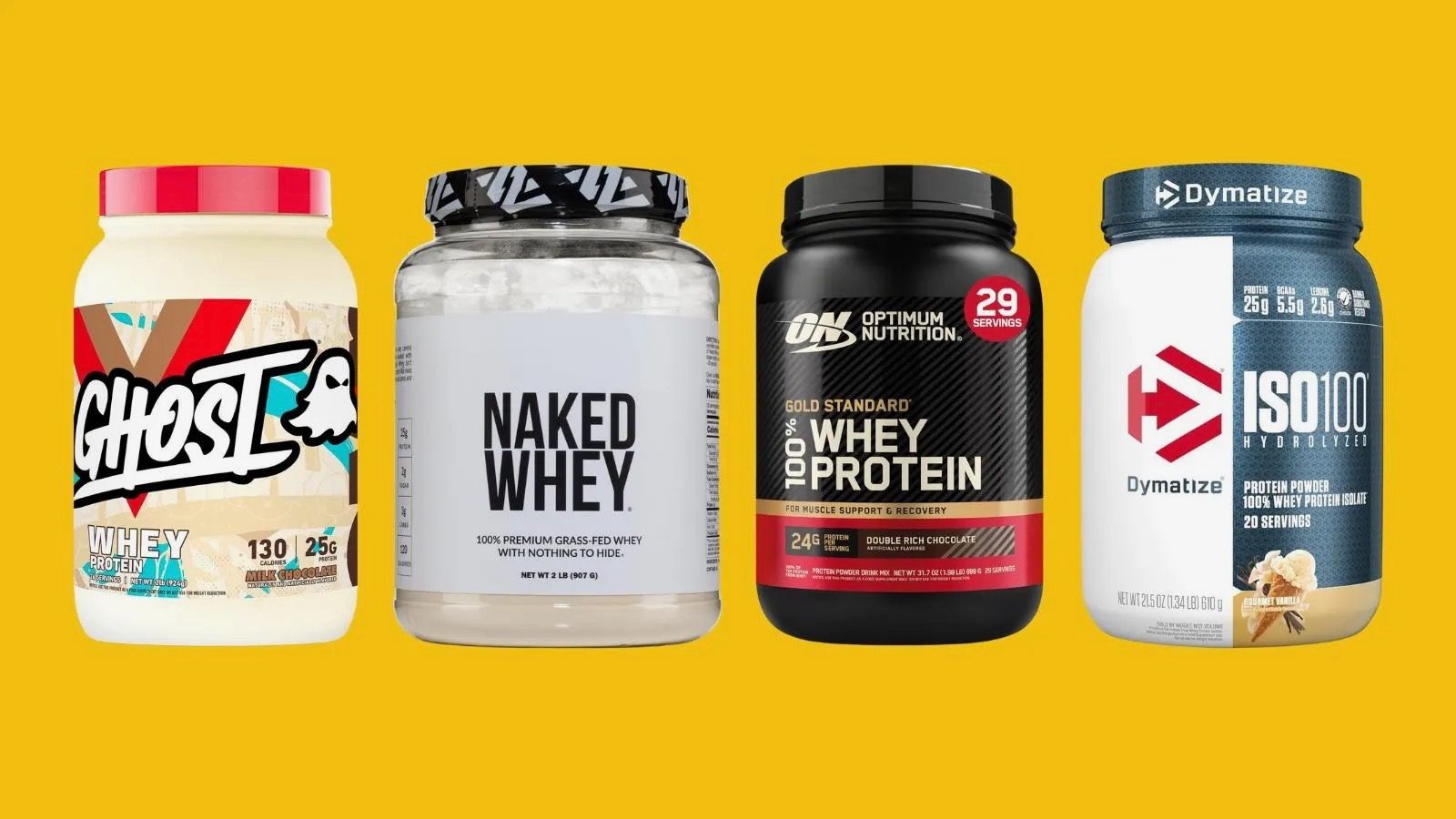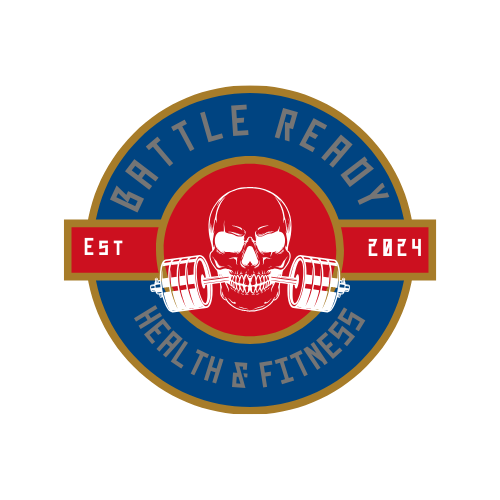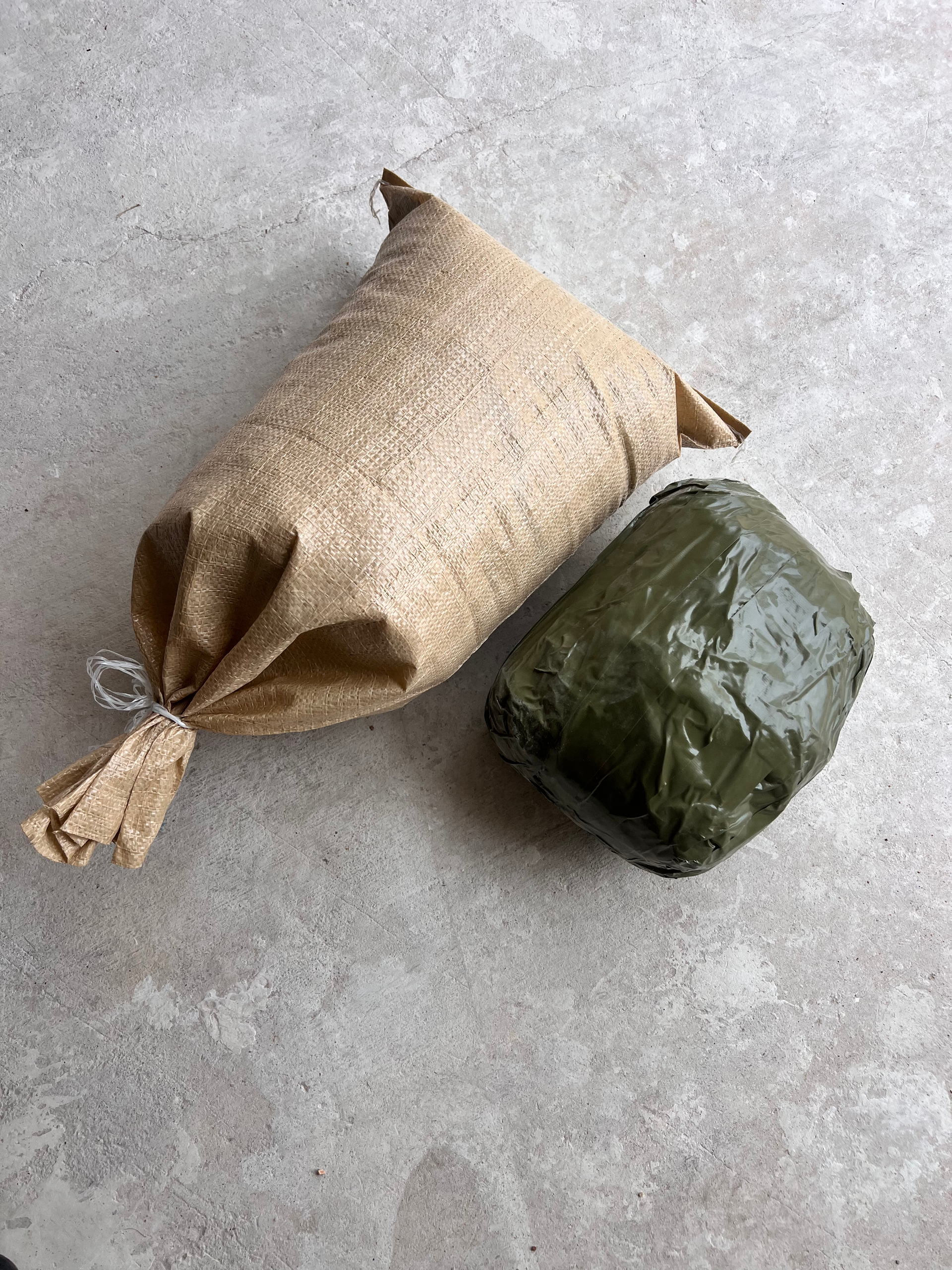
Creatine: Why You Should Be Taking It (And What Most People Get Wrong) Let’s set the record straight— creatine isn’t just for bodybuilders or bros trying to get “swole.” It’s one of the most effective, affordable, and misunderstood supplements out there. Whether you’re training for performance, staying mission-ready, or just trying to get stronger, creatine should already be in your daily routine. What is Creatine, Really? Creatine is a naturally occurring compound found in your muscles. Your body stores it to help make ATP (adenosine triphosphate) —your body’s primary energy source for short, explosive movements. I’m talking sprinting, heavy lifting, or going full beast mode during a high-intensity set (Kreider et al., 2017). Your body only stores a limited amount. And unless you're eating a pound of red meat every day, you're not getting enough from food. Supplementing with 5 grams of creatine monohydrate a day helps keep those energy stores full and your performance dialed in. What Creatine Actually Does Boosts strength and power Helps build lean muscle mass Improves muscular endurance Aids in recovery Even supports brain health (Avgerinos et al., 2018) Let’s Kill the Myths “Creatine makes you look bloated.” False. What it really does is pull water into your muscle cells , which is a good thing. It helps with recovery, nutrient delivery, and muscle function. You’re not holding water under your skin— you’re hydrating the muscle tissue itself (Buford et al., 2007). “It just makes your muscles look ‘swollen’ and not real.” Wrong again. Creatine supports real muscle growth through improved work capacity and ATP production. If your muscles are getting bigger, it’s because you’re training harder and recovering better—not because of some fake water weight. Drink Your Water Since creatine increases intracellular hydration , you need to be drinking over a gallon of water a day —especially if you're training hard or working in heat. You can’t expect your body to perform if it’s dehydrated. Period. Timing Doesn’t Matter—Consistency Does Another big myth? “You have to take it at the perfect time.” Nope. Research shows it doesn’t matter if you take creatine before, during, or after your workout—as long as you're consistently getting your 5 grams per day (Candow et al., 2020). So pick a time that works for you and stick with it. That’s what matters most. How It Works: Creatine → ATP → Power When you train, your body taps into ATP for quick energy. But your ATP stores deplete fast—like in seconds. Creatine helps replenish those ATP stores faster , which means you can go harder, longer, and recover better between sets (Sahlin, 2014). You’re not just taking a supplement—you’re literally fueling the engine that drives every rep. Final Word from Coach Mo Creatine is not magic—but it’s damn close. It’s cheap, safe, well-studied, and incredibly effective. If you care about performance, recovery, and real results, get on 5g of creatine monohydrate daily and stay consistent. And don’t forget: drink that water. Over a gallon a day. No excuses. Stay fueled. Stay focused. Stay Battle Ready. – Coach Mo Bibliography Avgerinos, K. I., Spyrou, N., Bougioukas, K. I., & Kapogiannis, D. (2018). Effects of creatine supplementation on cognitive function of healthy individuals: A systematic review of randomized controlled trials. Experimental Gerontology , 108, 166-173. Buford, T. W., Kreider, R. B., Stout, J. R., Greenwood, M., Campbell, B., Spano, M., ... & Antonio, J. (2007). International Society of Sports Nutrition position stand: creatine supplementation and exercise. Journal of the International Society of Sports Nutrition , 4(1), 6. Candow, D. G., Vogt, E., Johannsmeyer, S., Forbes, S. C., & Farthing, J. P. (2020). Strategic creatine supplementation and resistance training in healthy older adults. Applied Physiology, Nutrition, and Metabolism , 45(10), 1112-1117. Kreider, R. B., Kalman, D. S., Antonio, J., Ziegenfuss, T. N., Wildman, R., Collins, R., & Lopez, H. L. (2017). International Society of Sports Nutrition position stand: safety and efficacy of creatine supplementation in exercise, sport, and medicine. Journal of the International Society of Sports Nutrition , 14(1), 18. Sahlin, K. (2014). Muscle energetics during explosive activities and potential effects of nutrition and training. Sports Medicine , 44(Suppl 2), 167–173.

The Truth About Protein Intake Protein is often misunderstood when it comes to fitness and muscle building. Some people believe they need excessive amounts, while others underestimate its importance. In reality, the right protein intake is crucial for building lean muscle, promoting recovery, and optimizing overall performance. Most of my clients if not all have had misguiding information on protein intake and recently one of my favorite clients brought this topic up to me and because of her insightfulness and commitment she dug deeper into the subject and brought up some great points to me. This is why it is great to get feedback from everyone around you because you can always learn more. After a discussion with her I decided to write out this blog (with her help) to educate everyone on the topic. How Much Protein Do You Really Need? The amount of protein your body needs depends on various factors, including your weight, activity level, and fitness goals. The common misconception is that consuming 1 gram of protein per pound of body weight is enough to build muscle. However, this amount is more suited for maintaining muscle rather than promoting significant growth (Morton et al., 2018). Another misleading factor when determining protein intake is the often-cited recommended daily allowance (RDA) of 0.8g per kg of bodyweight, this is often cited by reputable organizations such as the American College of Sports Medicine (ACSM). However, this recommendation of 0.8g of protein per kg is a universal minimum for optimal bodily function, organ health, and overall disease prevention, regardless of exercise (Trumbo et al., 2002). Athletes and those who regularly participate in moderate to vigorous exercise will need more for muscle maintenance and growth. For individuals focused on building lean muscle , a higher intake is necessary: Muscle Maintenance : Around 1g of protein per pound (2.2g per kg) of body weight (Phillips, 2014). Muscle Growth : Anywhere between 1.2g - 1.6g of protein per pound (2.6g - 3.5g per kg) of body weight, depending on training intensity and overall calorie intake (Jäger et al., 2017). Extreme Muscle Building & Strength Training : In some cases, athletes and bodybuilders consume up to 2g per pound (4.4g per kg) of body weight to optimize muscle synthesis and recovery (Phillips & Van Loon, 2011). Fat Loss & Strength Training: When consuming anywhere from 1.2g – 1.5g of protein per pound (2.4g – 3.2g per kg) of body weight, bodybuilders saw significantly greater fat loss than control groups who consumed average RDA despite eating more calories than the control group (Antonio et al., 2015). Consistently consuming sufficient protein ensures your muscles have the necessary building blocks for growth, repair, and peak performance. How Protein Aids Muscle Recovery After intense workouts, your muscle fibers experience small tears that need to be repaired in order to grow stronger. Protein plays a critical role in this process by: Promoting Muscle Protein Synthesis (MPS) – The body uses protein to rebuild and strengthen muscle fibers, leading to lean muscle growth (Tipton & Wolfe, 2001). Reducing Muscle Soreness – Adequate protein intake helps decrease recovery time and muscle fatigue after exercise (Jäger et al., 2017). Supporting Overall Recovery – Along with rest and hydration, consuming protein post-workout replenishes amino acids and enhances recovery efficiency (Phillips, 2014). But what about diminishing returns on protein intake? It is also a common misconception that the body can only synthesize a certain amount of protein before the body turns it into uric acid waste. However, high protein intake when paired with heavy resistance training has proven to suppress this effect and improve protein anabolism; instead, the body can and will utilize more protein due to a greater muscle need from weightlifting (Tagawa et al., 2021). It's important to note that increased protein intake without resistance training will have no significant impact on body composition or lean body mass as the body will turn excess protein into waste if it has no need for it (Antonio et al., 2015).] Quality Over Quantity: Choosing the Right Protein Sources While meeting your daily protein requirements is essential, the quality of protein matters as well. Opt for high-quality protein sources, such as: Lean meats (chicken, turkey, lean beef) Fish & seafood (salmon, tuna, shrimp) For women, sardines and anchovies as they are packed with calcium Eggs & dairy (Greek yogurt, cottage cheese, milk) Plant-based options (lentils, beans, quinoa, tofu) Protein supplements (whey, casein, plant-based protein powders) A well-balanced diet with a variety of protein sources ensures you receive essential amino acids for optimal muscle repair and growth. Final Thoughts Understanding protein intake is key to achieving your fitness goals. It’s not about consuming excessive amounts but rather ensuring you get the right amount based on your body weight and activity level. By incorporating quality protein sources into your diet, you’ll optimize muscle growth, enhance recovery, and improve overall performance. If you're looking for personalized guidance on your fitness and nutrition journey, I can help! Contact me today to start building a stronger, healthier body. -Coach Mo Bibliography Antonio, J., Ellerbroek, A., Silver, T., Orris, S., Scheiner, M., Gonzalez, A., Peacock, C. (2015). Journal of the International Society of Sports Nutrition, 12 (39). Jäger, R., Kerksick, C. M., Campbell, B. I., Cribb, P. J., Wells, S. D., Skwiat, T. M., ... & Antonio, J. (2017). International Society of Sports Nutrition Position Stand: protein and exercise. Journal of the International Society of Sports Nutrition, 14 (1), 20. Morton, R. W., Murphy, K. T., McKellar, S. R., Schoenfeld, B. J., Henselmans, M., Helms, E., ... & Phillips, S. M. (2018). A systematic review, meta-analysis, and meta-regression of the effect of protein supplementation on resistance training-induced gains in muscle mass and strength. British Journal of Sports Medicine, 52 (6), 376-384. Phillips, S. M. (2014). A brief review of critical processes in exercise-induced muscular hypertrophy. Sports Medicine, 44 (S1), 71-77. Phillips, S. M., & Van Loon, L. J. (2011). Dietary protein for athletes: from requirements to optimum adaptation. Journal of Sports Sciences, 29 (S1), S29-S38. Tagawa, R., Watanabe, D., Ito, K., Ueda, K., Nakayama, K., Sanbongi, C., and Miyachi, M. (2021). Dose-response relationship between protein intake and muscle mass increase: a systemic review and meta-analysis of randomized controlled trials. Nutrition Reviews , 79(1), 66-75. Tipton, K. D., & Wolfe, R. R. (2001). Exercise, protein metabolism, and muscle growth. International Journal of Sport Nutrition and Exercise Metabolism, 11 (1), 109-132. Trumbo P, Schlicker S, Yates AA, Poos M; Food and Nutrition Board of the Institute of Medicine, The National Academies. (2002). Dietary reference intakes for energy, carbohydrate, fiber, fat, fatty acids, cholesterol, protein and amino acids. J Am Diet Assoc. 102 (11):1621-30.




